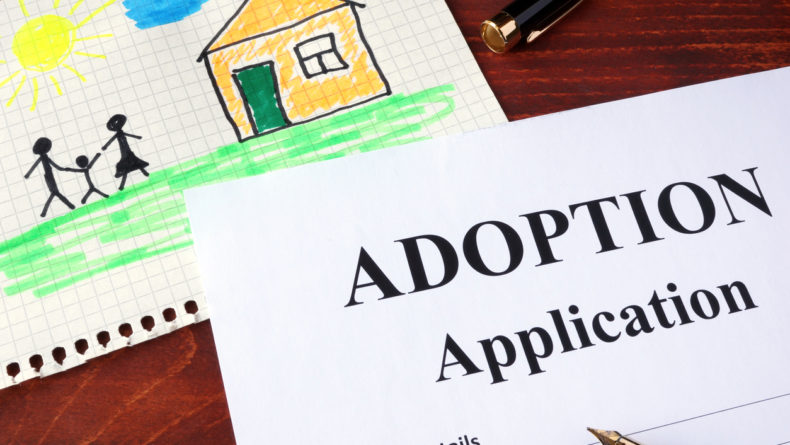Waiting To Adopt In Japan: Real Struggles, Real Challenges
One Couple's Confusions And Confessions Of Trying To Build A Family Through Adoption
An interview with one international couple on their challenges when trying to adopt in Japan.
Since things are going rather smoothly in my own family right now (knock wood), I thought I’d write about some of the people who belong to my Facebook group who are in the process of trying to start a family by adopting or fostering children here in Japan. Today, I’ll tell you about American Serena and her Japanese husband Mamoru (pseudonyms), a Kansai-based couple faced with many challenges and frustrations not uncommon to mixed-race or foreign couples on the same path.
Serena has been in Japan for six years and has known since a young age that she wouldn’t have ruled out adoption in order to create a family. After miscarrying several times, she and her husband (who initially was not in favor of adoption, but changed his thinking after seeing a video I’d posted to our group about institutionalization in Japan) began looking for children to call their own. Their goal is to raise three kids and their best-case scenario would be for all the children to be under the age of three at the time of adoption. They started the process in late autumn of 2017.
Serena feels that she and her husband are ideally situated to become adoptive parents: they have a good income, a large living space, and she would be able to be a stay-at-home parent.
Because Serena had been trying to give birth “for years,” she and Mamoru are keen to adopt as soon as possible. Serena feels that she and her husband are ideally situated to become adoptive parents: they have a good income, a large living space, and she would be able to be a stay-at-home parent. They also have a lot of love to give and can’t wait to start their family.
Serena and Mamoru have cast a wide net in order to increase their chances for success. They have signed up with several agencies at the same time: the online agency, Kounotori/Akachan Matching at a cost of ¥3,000 per month, their local Child Guidance Centre, and a private agency called Bare Hope. Later this month, they will attend a seminar in Tokyo given by Jikei, a well-known university hospital.
However, their experience so far has been far from smooth.
The obstacles
One of the requirements of the Child Guidance Centre is that prospective parents attend a series of lectures on fostering. Because of Mamoru’s work, the couple missed one lecture, so they have to wait a few months to attend the next session, putting them, in Serena’s words, “in a holding pattern” and at the mercy of the system. This also affects their chances with Jikei Hospital, which insists that they have a certificate of completing the fostering course in hand before they can be considered.
Another institution told the couple outright that they only accepted Japanese couples as prospective adoptive parents.
Serena and Mamoru had also contacted International Social Services Japan (ISSJ) but were told that the children there were older than the couple wished for. A different Christian institution said the children there had severe physical or emotional challenges. Another institution, which Serena preferred not to name, told the couple outright that they only accepted Japanese couples as prospective adoptive parents.
Serena thinks that this is because the organizations assume she will eventually leave Japan and return to her home country. The same had happened to her when she tried to adopt a dog in Japan some years ago — the rescue organization she contacted told her that they only gave dogs to Japanese people because they assumed she’d leave the country at some point, and thereby leave the dog in Japan.
Discouragement
Serena told me she feels “discouraged” and “disheartened.” She was shocked when the Child Guidance Centre caseworker told her and Mamoru outright that the Japanese system favors the rights of birth parents over the rights of children to be raised in a loving home. The day I interviewed her, she had had a home visit from the caseworker who also told her that due to a new law implementation, starting in April of this year, Japanese couples would take precedence over mixed-race or foreign couples, giving her the feeling that, besides being discriminated against, the process would take forever. As controversial as this new law is, as of present there is almost no information about it, and all announcements are expected to be made later in the year.
However, her caseworker offered “a little light of hope,” saying that the new rule could work in her favor if the birth parent wants the child to grow up in a “non-traditional environment.”
Bare Hope, the private organization they are in touch with, however, recently shattered their hopes again.
A new law implementation, starting in April of this year, [will grant] Japanese couples precedence over mixed-race or foreign couples.
“My husband received a phone call from Bare Hope. They called to confirm our attendance to the seminar later this month. At that time, they mentioned the law that would be going into effect April 2018 favoring Japanese couples over foreign or foreign/Japanese couples. The lady from the agency told him that they would not be working with international couples from now on. Furthermore, she told him* that if a couple wanted to adopt a baby, they would prioritize giving healthy babies to Japanese couples and foreign or foreign/Japanese couples already registered with them would be considered for babies with challenges (i.e. Down Syndrome) because there are more of them waiting to be adopted. Needless to say, after talking with my husband tonight, we’ve decided not to adopt with Bare Hope.”
However, in a subsequent interview with me, Serena said she was told that the online organization Kounotori would take the birth mother’s wishes into account and if she wanted the baby to be placed with a foreign or mixed-race couple, the priority would change. It seems that while the law is changing, some agencies may be flexible while others may not. That said, since the law has not yet been published, this remains to be seen.
Trying not to lose hope
I asked Serena what advice she would give to prospective adoptive parents. She recommends that people do their research and ask themselves what age of children they want and if they can handle children with challenges. Then, they should start looking for agencies nearby, broadening out to the rest of the country. It is also important that the couple keep communicating at each step, reviewing their feelings about interviews and the information they are receiving.
At the end of our interview, I told Serena that my husband and I waited three years for Shinji, and to not give up hope. We are all looking forward to the day she when tells our group that a child has been placed with her and Mamoru!
Melodie’s two yen
Because adoption and fostering of special needs children is more common abroad, and there is likely more literature about it, agencies may unknowingly still be doing what is in the best interests of children with challenges by placing them with mixed-race and foreign families. We have access to more resources and can probably do more good since there is less information available to Japanese couples, especially those adopting for the first time. Keeping in mind that the return rate of foster children in Japan is 25%, I suspect part of that is a lack of training. So, prospective adoptive parents, consider adopting/fostering special needs kids, too!
*Please note that this information is based on a conversation with one representative of the organization and does not necessarily present the views of the company itself. More information on the law this decision is made on will be published after its implementation in April.
“Confessions & Confusions” is Melodie Cook’s regular column on adoption and fostering in Japan. Here, she answers questions from potential adoptive or foster parents, those who have already been through the system or any parents who just need to let off some steam. Got a question? Leave a comment or send us an email at editorial@gplusmedia.com.
















Leave a Reply